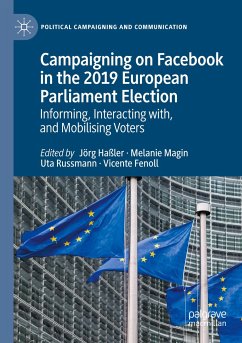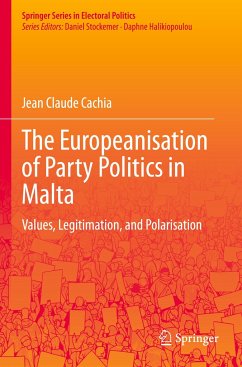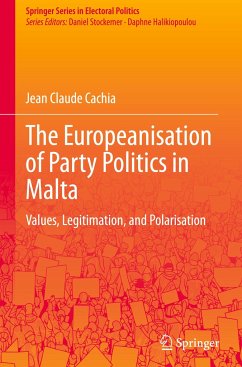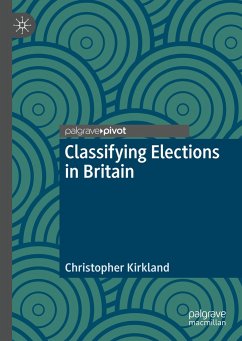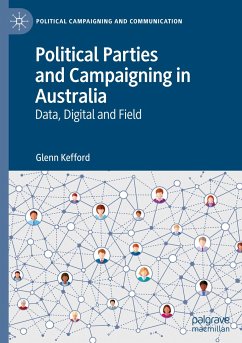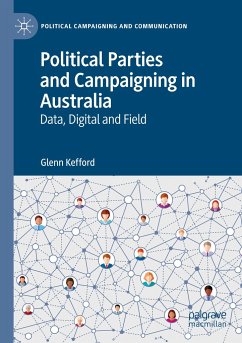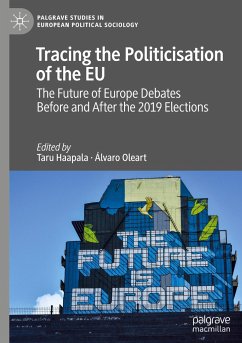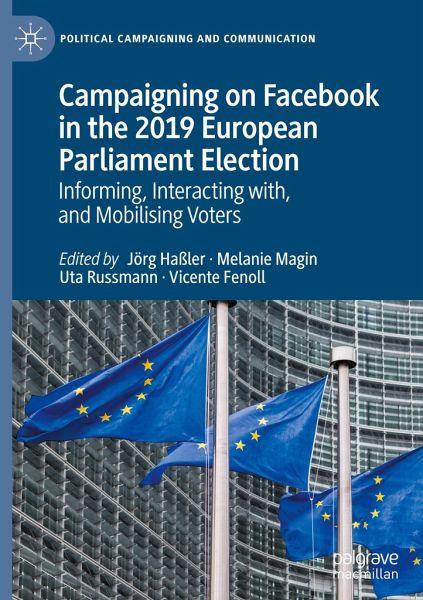
Campaigning on Facebook in the 2019 European Parliament Election
Informing, Interacting with, and Mobilising Voters
Herausgegeben: Haßler, Jörg; Magin, Melanie; Rußmann, Uta; Fenoll, Vicente

PAYBACK Punkte
53 °P sammeln!
This book investigates how political parties from 12 European countries used Facebook to inform, interact with and mobilise voters at the 2019 European Parliament election. Following a joint theoretical framework and method, the results of a content analysis of more than 14,000 Facebook posts are presented. Country specific chapters are followed by analyses of European parties' Facebook campaigning, the spread of populism and the use of Facebook ads by the parties. The final chapter compares all countries showing that campaigns are more strongly shaped by the national than by the European poli...
This book investigates how political parties from 12 European countries used Facebook to inform, interact with and mobilise voters at the 2019 European Parliament election. Following a joint theoretical framework and method, the results of a content analysis of more than 14,000 Facebook posts are presented. Country specific chapters are followed by analyses of European parties' Facebook campaigning, the spread of populism and the use of Facebook ads by the parties. The final chapter compares all countries showing that campaigns are more strongly shaped by the national than by the European political context. Facebook is used for campaigning as usual; parties inform and persuade but neglect the platform's mobilisation and particularly interactive affordances.





